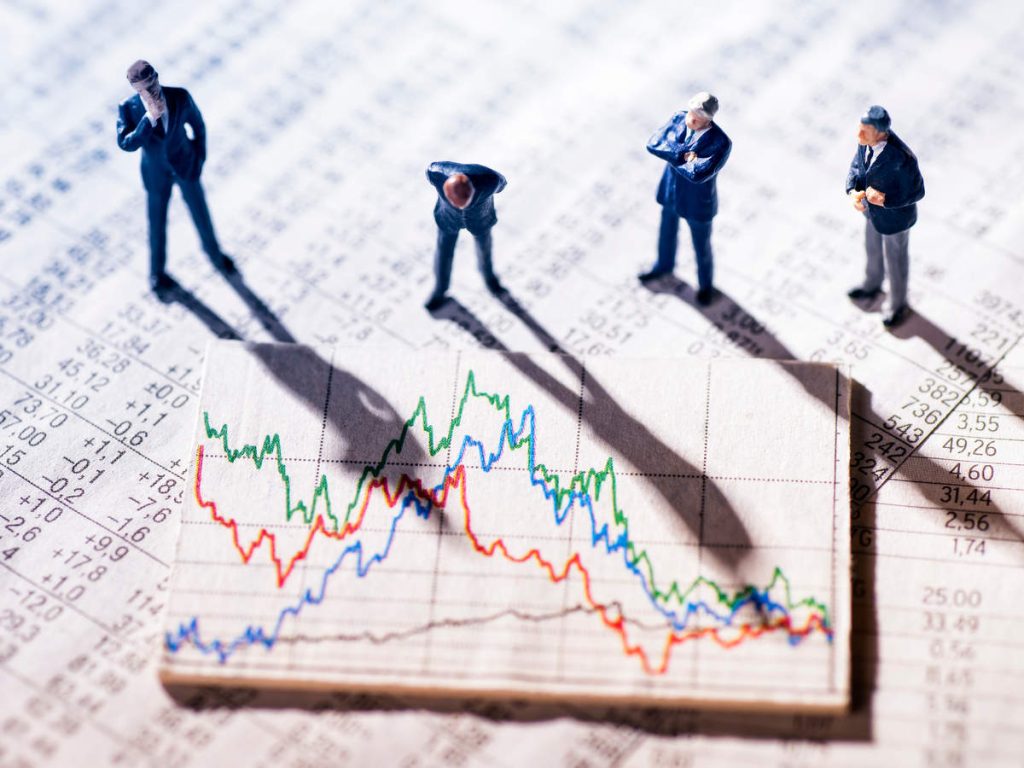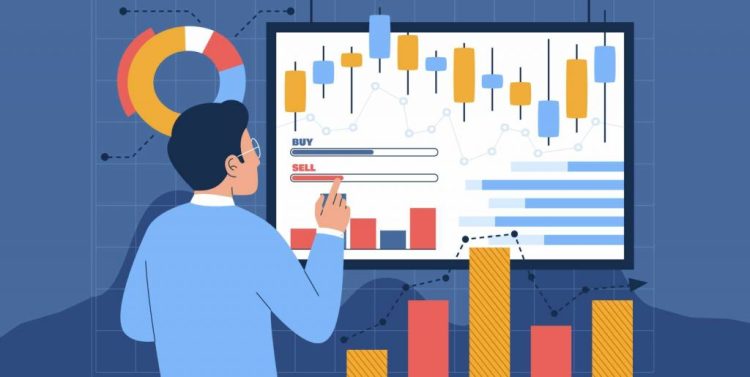In today’s fast-moving financial landscape, investors must stay informed about the ever-changing market dynamics to make informed decisions. This article provides a real-time breakdown of the latest market developments, explores the reasons behind the current volatility, and offers expert insights on how investors should adjust their strategies in response to these shifts.
Real-Time Breakdown of Today’s Most Important Market News
The market has experienced significant fluctuations over the past week, with various factors contributing to the heightened volatility. These shifts are not solely driven by domestic events but are also influenced by global economic trends. As of today, stock markets have seen sharp declines in the wake of mixed economic data and global tensions. However, there are a few key drivers that investors should be paying close attention to.
Economic Data Impact
One of the primary catalysts for recent market movements is the release of mixed economic data. On one hand, consumer spending has remained strong, suggesting resilience in the U.S. economy. On the other hand, inflationary pressures have shown signs of increasing again, with energy prices climbing and supply chain issues continuing to affect the global economy. This conflicting data has made it harder for investors to gauge the direction of future growth, leading to market jitters.
Federal Reserve and Interest Rates
The U.S. Federal Reserve remains at the center of market speculation, particularly regarding interest rates. The Fed’s actions over the past several months have been pivotal in shaping market sentiment. Investors are anxiously awaiting any signals that the Fed may raise interest rates further to combat rising inflation, as such actions would likely dampen economic growth and put pressure on stocks. The uncertainty surrounding the Fed’s next move has contributed to market volatility, as traders adjust their positions based on new information.
Geopolitical Tensions and Trade Wars
Another significant factor impacting global markets is the ongoing geopolitical tensions in various parts of the world. Trade wars, particularly between the U.S. and China, have escalated in recent months, creating uncertainty about future trade relations and the overall global economic landscape. In addition, political instability in regions such as Europe and the Middle East continues to create ripple effects across financial markets, making investors nervous about the potential for conflict to disrupt global supply chains.
Corporate Earnings Reports
Corporate earnings reports have been mixed, with some companies posting strong results while others have struggled to meet market expectations. These reports are often seen as a direct reflection of a company’s health and future prospects, and they can have a significant impact on stock prices. The market’s reaction to earnings reports in recent weeks has been volatile, with investors quickly shifting their focus between companies that are outperforming and those facing challenges.
Analyzing the Reasons Behind Market Volatility
Understanding the reasons behind market volatility is crucial for any investor trying to navigate today’s turbulent financial environment. Volatility is typically driven by a combination of factors, and today is no exception. The key elements at play include:
Economic Uncertainty
At the heart of the current market volatility is a sense of economic uncertainty. With inflation still a concern and consumer spending patterns shifting, predicting the future direction of the economy is increasingly difficult. Central banks around the world are tightening monetary policies, raising interest rates, and signaling more aggressive action in the months ahead, all of which are putting pressure on the market.
Global Supply Chain Disruptions
Global supply chain disruptions continue to affect nearly every sector, from technology to manufacturing. As demand for products remains strong, supply shortages and delays are causing higher costs and limiting growth in many industries. This has had a direct impact on corporate earnings and has further exacerbated inflationary pressures. Investors are concerned that the supply chain disruptions will persist and could hinder economic recovery.
Investor Sentiment and Fear of Recession
Investor sentiment plays a significant role in driving market volatility. The current fear of a potential recession, combined with geopolitical risks and uncertainty in global financial markets, has led many investors to adopt a more cautious approach. Fear of the unknown often leads to selling pressure, exacerbating declines in the market. Furthermore, market participants are keeping a close eye on the potential for economic contraction, which could dampen consumer demand and corporate profitability.
Technological Innovation and Market Disruption
Technological advancements and market disruption are also contributing to volatility. While innovation has long been a driving force behind economic growth, it can also introduce uncertainty. The rise of artificial intelligence, blockchain technology, and other emerging technologies has transformed entire industries, but it has also led to market disruptions as companies and sectors scramble to adapt. These rapid changes are unsettling for some investors, who may be unsure of how to best position themselves in such a dynamic environment.
How Investors Should Adjust Strategies
Given the current market turbulence, it’s crucial for investors to reassess their strategies to ensure they are positioned for both short-term and long-term success. Experts recommend taking a more cautious approach while maintaining flexibility to adjust as new information becomes available.
Diversification
One of the most effective strategies during times of market volatility is diversification. Spreading investments across various sectors and asset classes can help mitigate risk and reduce the impact of sudden market shifts. By holding a well-diversified portfolio, investors can increase their chances of weathering market storms without suffering substantial losses.
Focus on Fundamentals
In uncertain times, it’s important for investors to focus on the fundamentals. Companies with strong balance sheets, solid earnings growth, and a competitive edge are better positioned to weather economic downturns. While market fluctuations can lead to short-term volatility, long-term investors should look for businesses that are well-managed and can thrive regardless of the market cycle.

Risk Management
Effective risk management is crucial in times of market uncertainty. Investors should assess their risk tolerance and ensure their portfolios are balanced accordingly. This may involve reducing exposure to highly speculative or volatile assets, such as emerging markets or technology stocks, and increasing holdings in more stable, defensive assets such as bonds or dividend-paying stocks. Additionally, using stop-loss orders and other risk management tools can help limit potential losses.
Stay Informed
Finally, staying informed is one of the best ways to navigate the complexities of the market. Keeping an eye on economic reports, central bank policies, and global developments will allow investors to make timely adjustments to their strategies. It’s also advisable to consult with financial advisors or investment professionals who can provide expert insights and tailored advice.
Expert Opinions on How to Navigate Market Shifts
Financial experts are united in their view that investors need to remain patient and avoid making impulsive decisions based on short-term market fluctuations. Many emphasize the importance of maintaining a long-term perspective, particularly in an environment where economic growth is likely to continue but with bouts of volatility along the way.
Long-Term Investment Strategy
According to several market experts, one of the most effective strategies during times of volatility is to stick to a long-term investment approach. While it can be tempting to react to daily market swings, history has shown that the market tends to recover from short-term disruptions over time. Investors who focus on long-term growth potential, rather than trying to time the market, are more likely to come out ahead in the long run.
Patience and Discipline
The current market climate requires patience and discipline. Investors are advised to resist the urge to make hasty decisions based on fear or short-term trends. Staying the course with a well-structured investment plan, rather than reacting emotionally to market movements, is a strategy that has served many successful investors in the past.
Regular Portfolio Rebalancing
Even in volatile markets, it’s important to regularly rebalance portfolios to ensure they remain aligned with one’s financial goals and risk tolerance. Periodic rebalancing allows investors to take profits from sectors that have performed well and allocate them to underperforming areas, maintaining a balanced and diversified portfolio.
Conclusion
In summary, while today’s markets are marked by volatility and uncertainty, there are several strategies that investors can use to navigate the shifting financial landscape. Understanding the underlying reasons for market movements, staying informed, and focusing on diversification, risk management, and long-term goals are key components of a successful investment strategy. The current market environment may present challenges, but with careful planning and expert advice, investors can successfully weather the storm and emerge stronger in the future.



































